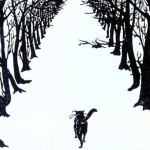Has something gone badly wrong with storytelling?
Whether you believe in science or not, science doesn’t care
I grew up professionally in a world obsessed with performance improvement – maybe too much so. The talk at conference was always about:
- what worked
- what didn’t work
- did what was shown as working really work?
People with results were heroes. People without results were not on stage. There were a few con artists with impossible results, but, hey, what do you expect.
Now, at conferences, all conversations are about narrative:
- What I intend to do
- What obstacles or difficulties are in my path
- How does/will it resolve itself and what is the moral conclusion?
Now, we’ve long know since Jerome Bruner’s seminal work that learning and reasoning grows according to its scaffolding, which is the symbolic progression to understanding (different scaffoldings lead to different insights and different worldviews)
- The narrative scaffolding is very different from the rational analysis one
Rational reasoning is about truth and fact: what is and what is not. It’s also about knowing that things change and facts have a half-life (half of what you currently know as fact now will be found to be false, but we don’t know which half), and some facts are more robust then others (last longer) and closer to truths. Science’s big job is to constantly challenge facts through empirical study and ween out untrue facts in a darwinian ecology of knowledge. It’s turgid work, but very powerful as long as the careful job of measuring, comparing and challenging is done daily.
Narrative is all about meaning, intentionality, difficulties and resolution with a moral ending. The Campbellian myth is the archetypal narrative of the hero living his or her home village, encountering wise helpers who will give him or her magic weapons (often at the cost of personal sacrifice) with which to fight monsters, capture the golden treasure hidden in the mystery box and become king/queen of the wicker people or return home triumphant.
Narrative, of course, is so much more fun. Buuuuut… not that competitive.
Story telling is all the rage these days, as a way to make one’s ideas more palatable to others, and as a business novel writer, who am I to argue, but, hey, if we transform every process description into a “just so” story aren’t we losing the plot?

In my own field, lean thinking, the plot used to be how kaizen with people on the shop floor lead to solving problems and improving performance by careful observation, discussion and repeated attempts at solving hard problems with rigorous measurement. Sounds like work. One aspect of this is that hard problems hardly ever open up at first try and we had to got back to the grindstone time and time again on difficult problems, figure out what worked and didn’t work (In edisonian terms, we don’t fail 100 times before succeeding, we discover 99 ways that don’t work – that’s knowledge as well).
Now it’s all about carrying out “experiments.” If the experiment is not successful, rather than try again, the temptation is to move on and try something else, elsewhere. This makes perfect sense in a narrative frame: look at all the things I intend to do, look at the difficulties encountered and at my personal “lessons learned” and hey, I’m off to fish in a new pond. It also makes for very poor knowledge accumulation of what is versus what is not.
My fear is that we are creating an “improvement myth” that has very little to do with the revolutionary practice of kaizen and facing one’s challenges with the people themselves by try and try again until we’ve figured this out. The improvement myth is about seeing learning in personal insight and not performance improvement. It’s solipsism masquerading as experimenting (activities planned for the purpose of learning). It’s personal self-discovery pretending to be technical learning. It makes for great hollywood scripts, but a rather poor way of actually become for effective and more competitive.
I’m not arguing against storytelling – as a novelist, how could I? I love a great story and admire a good storyteller. I’m arguing for some sanity is distinguishing when story telling applies, around the campfire, with a pint at the pub and in all situations where we want to encourage imagination, from situations where we need be creative in connecting the dots, distinguish intention from reality, and discover the hard way what is what and what is not. When you feel miserable in the rain in winter, it’s not the rain that is cold and wet: it’s you. The rain doesn’t care, it just falls.
It’s not what you don’t know that gets in you in trouble, the saying goes, but what you think you know that just ain’t so.









